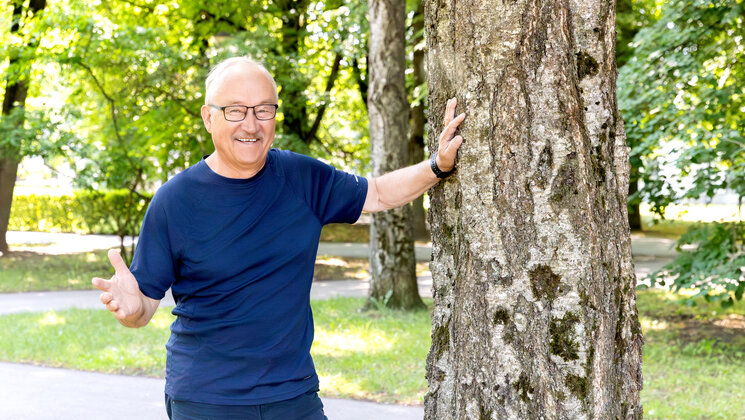-
Faculty of Arts and HumanitiesDean's Office, Faculty of Arts and HumanitiesJakobi 2, r 116-121 51005 Tartu linn, Tartu linn, Tartumaa EST0Institute of History and ArchaeologyJakobi 2 51005 Tartu linn, Tartu linn, Tartumaa EST0Institute of Estonian and General LinguisticsJakobi 2, IV korrus 51005 Tartu linn, Tartu linn, Tartumaa ESTInstitute of Philosophy and SemioticsJakobi 2, III korrus, ruumid 302-337 51005 Tartu linn, Tartu linn, Tartumaa EST0Institute of Cultural ResearchÜlikooli 16 51003 Tartu linn, Tartu linn, Tartumaa EST0Institute of Foreign Languages and CulturesLossi 3 51003 Tartu linn, Tartu linn, Tartumaa EST0School of Theology and Religious StudiesÜlikooli 18 50090 Tartu linn, Tartu linn, Tartumaa EST0Viljandi Culture AcademyPosti 1 71004 Viljandi linn, Viljandimaa EST0Professors emeritus, Faculty of Arts and Humanities0Associate Professors emeritus, Faculty of Arts and Humanities0Faculty of Social SciencesDean's Office, Faculty of Social SciencesLossi 36 51003 Tartu linn, Tartu linn, Tartumaa EST0Institute of EducationJakobi 5 51005 Tartu linn, Tartu linn, Tartumaa EST0Johan Skytte Institute of Political StudiesLossi 36, ruum 301 51003 Tartu linn, Tartu linn, Tartumaa EST0School of Economics and Business AdministrationNarva mnt 18 51009 Tartu linn, Tartu linn, Tartumaa EST0Institute of PsychologyNäituse 2 50409 Tartu linn, Tartu linn, Tartumaa EST0School of LawNäituse 20 - 324 50409 Tartu linn, Tartu linn, Tartumaa EST0Institute of Social StudiesLossi 36 51003 Tartu linn, Tartu linn, Tartumaa EST0Narva CollegeRaekoja plats 2 20307 Narva linn, Ida-Virumaa EST0Pärnu CollegeRingi 35 80012 Pärnu linn, Pärnu linn, Pärnumaa EST0Professors emeritus, Faculty of Social Sciences0associate Professors emeritus, Faculty of Social Sciences0Faculty of MedicineDean's Office, Faculty of MedicineRavila 19 50411 Tartu linn, Tartu linn, Tartumaa ESTInstitute of Biomedicine and Translational MedicineBiomeedikum, Ravila 19 50411 Tartu linn, Tartu linn, Tartumaa ESTInstitute of PharmacyNooruse 1 50411 Tartu linn, Tartu linn, Tartumaa ESTInstitute of DentistryL. Puusepa 1a 50406 Tartu linn, Tartu linn, Tartumaa ESTInstitute of Clinical MedicineL. Puusepa 8 50406 Tartu linn, Tartu linn, Tartumaa ESTInstitute of Family Medicine and Public HealthRavila 19 50411 Tartu linn, Tartu linn, Tartumaa ESTInstitute of Sport Sciences and PhysiotherapyUjula 4 51008 Tartu linn, Tartu linn, Tartumaa ESTprofessors emeritus, Faculty of Medicine0associate Professors emeritus, Faculty of Medicine0Faculty of Science and TechnologyDean's Office, Faculty of Science and TechnologyVanemuise 46 - 208 51003 Tartu linn, Tartu linn, Tartumaa ESTInstitute of Computer ScienceNarva mnt 18 51009 Tartu linn, Tartu linn, Tartumaa ESTInstitute of GenomicsRiia 23b/2 51010 Tartu linn, Tartu linn, Tartumaa ESTEstonian Marine Institute0Institute of PhysicsInstitute of ChemistryRavila 14a 50411 Tartu linn, Tartu linn, Tartumaa ESTInstitute of Mathematics and StatisticsNarva mnt 18 51009 Tartu linn, Tartu linn, Tartumaa EST0Institute of Molecular and Cell BiologyRiia 23, 23b - 134 51010 Tartu linn, Tartu linn, Tartumaa ESTTartu ObservatoryObservatooriumi 1 61602 Tõravere alevik, Nõo vald, Tartumaa EST0Institute of TechnologyNooruse 1 50411 Tartu linn, Tartu linn, Tartumaa ESTInstitute of Ecology and Earth SciencesJ. Liivi tn 2 50409 Tartu linn, Tartu linn, Tartumaa ESTprofessors emeritus, Faculty of Science and Technology0associate Professors emeritus, Faculty of Science and Technology0Area of Academic SecretaryHuman Resources OfficeÜlikooli 18, ruumid 302 ja 304 50090 Tartu linn, Tartu linn, Tartumaa EST0Area of Head of FinanceFinance Office0Area of Director of AdministrationInformation Technology Office0Administrative OfficeÜlikooli 17 (III korrus) 51005 Tartu linn, Tartu linn, Tartumaa EST0Estates Office0Marketing and Communication OfficeÜlikooli 18, ruumid 102, 104, 209, 210 50090 Tartu linn, Tartu linn, Tartumaa EST0Area of Vice Rector for Academic AffairsOffice of Academic AffairsUniversity of Tartu Youth AcademyUppsala 10 51003 Tartu linn, Tartu linn, Tartumaa ESTStudent Union OfficeÜlikooli 18b 51005 Tartu linn, Tartu linn, Tartumaa EST0Centre for Learning and TeachingArea of Vice Rector for ResearchUniversity of Tartu LibraryW. Struve 1 50091 Tartu linn, Tartu linn, Tartumaa ESTGrant OfficeArea of Vice Rector for DevelopmentCentre for Entrepreneurship and InnovationNarva mnt 18 51009 Tartu linn, Tartu linn, Tartumaa EST0University of Tartu Natural History Museum and Botanical GardenVanemuise 46 51003 Tartu linn, Tartu linn, Tartumaa EST0International Cooperation and Protocol Office0University of Tartu MuseumLossi 25 51003 Tartu linn, Tartu linn, Tartumaa EST0Area of RectorRector's Strategy OfficeInternal Audit Office
UT archaeochemist Ester Oras receives the fellowship For Women in Science
The Estonian Academy of Sciences has announced that this year’s fellowship of the L’Oréal-UNESCO For Women in Science Baltic Young Talents programme is awarded to Ester Oras, Associate Professor in Analytical Chemistry and Associate Professor of Archaeology at the University of Tartu, whose research focuses on ancient dietary patterns and their associations with health.
The winner of the 6,000-euro prize Ester Oras, the principal investigator of the Archemy lab’s research team at the University of Tartu, studies ancient human nutrition and diseases using modern laboratory analysis methods.
“As an archeochemist, I’d like to show the impact of historical dietary patterns on our health and wellbeing, both in the past and today. My research materials are centuries- or millennia-old earthenware vessels and human skeletons. The use of archaeological material makes it possible to show how closely nutrition and health are intertwined, for example, the impact of diet on our physical appearance, the occurrence of metabolic diseases, changes in the microbiome or the development of long-term genetic mutations. Poetically speaking, I want to give colour and flavour to the past and bring history closer to us all,” Oras said.
The doctoral student’s award was given to Karolina Kudelina, a junior researcher at the Department of Electrical Power Engineering and Mechatronics, Tallinn University of Technology, who is developing an intelligent fault prevention system for electrical machines. According to the researchers, the fellowship is very important for them to continue their own research but also to encourage other young women to choose a career in science.
The President of the Estonian Academy of Sciences Tarmo Soomere says it is highly welcome that the fellowship programme supports the solving of important problems in society through methods in which the cutting-edge achievements of science and engineering are combined with messages that resonate with people and that only social sciences can offer. What is common for both awardees is their keen social nerve, for which they serve as a model for colleagues.
In Estonia, the award For Women in Science was issued for the first time six years ago. The eight brilliant researchers who have previously received the recognition are Els Heinsalu, Karin Kogermann, Tuul Sepp, Kaarin Parts, Prof. Maarja Grossberg, Lisandra Marina Da Rocha Meneses-Nandha, Kaija Põhako-Esko and Mari-Ann Lind.
The L’Oréal-UNESCO Baltic Young Talents programme For Women in Science is the only grant scheme in the Baltic states which, in cooperation with the Estonian National Commission for UNESCO and the Estonian Academy of Sciences, supports the professional development of female scientists and the achievement of their important goals. The programme emerged from the global programme For Women in Science, created by UNESCO and L’Oréal in 1998 to increase the number of female scientists and to promote gender equality in science.

High genetic risk of attention deficit hyperactivity disorder suggests possible health consequences

